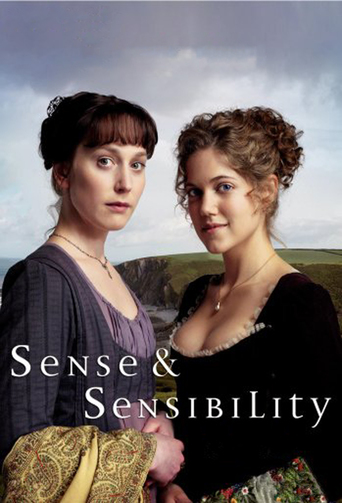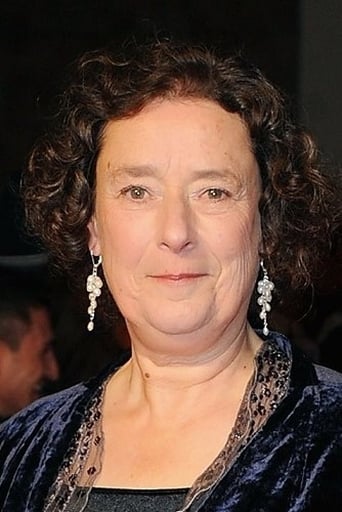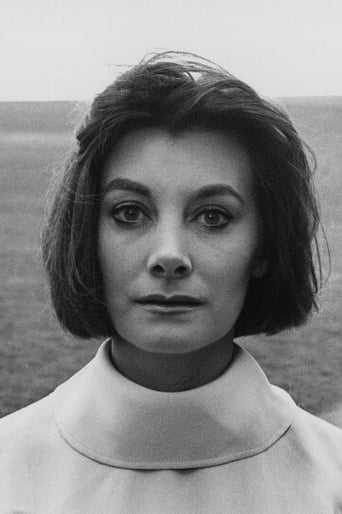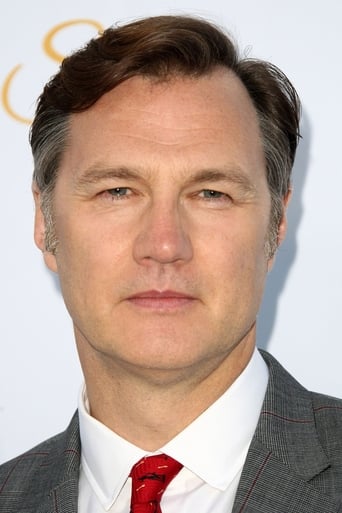

Sense and Sensibility (2008)
This is the acclaimed 2008 BBC adaptation of the famous Jane Austen novel. While it originally aired as a 3-part miniseries, this home video release includes a single uninterrupted version of the entire film.
Watch Trailer
Cast
Reviews
Memorable, crazy movie
Excellent but underrated film
It was OK. I don't see why everyone loves it so much. It wasn't very smart or deep or well-directed.
The film creates a perfect balance between action and depth of basic needs, in the midst of an infertile atmosphere.
This is an amazing series: the perfect casting, the acting,the music, the script! I love it all
If this is the first film adaption of one of Jane Austin's books that you have watched you will find it really enjoyable. As someone who has seen Tom Wright's 'Pride and Prejudice' and Ang Lee's 'Sense and Sensibility', I was really disappointed to see that this version had blatantly and lazily ripped off cinematography from both. To make it worse, they did a far worse job of it. It was like eating off-brand Doritos; you really want to enjoy it but it's just reminding you of something that's far better.If this is the first film adaption of one of Jane Austin's books that you have watched you will find it really enjoyable. As someone who has seen Tom Wright's 'Pride and Prejudice' and Ang Lee's 'Sense and Sensibility', I was really disappointed to see that this version had blatantly and lazily ripped off cinematography from both. To make it worse, they did a far worse job of it. It was like eating off-brand Doritos; you really want to enjoy it but it's just reminding you of something that's far better.
Over a decade after Emma Thompson's Oscar winning adaption of Jane Austen's most popular novel, Sense & Sensibility; screen-writer Andrew Davies brought the story to television released as a mini-series through the BBC. Given the critical acclaim Thompson's adaption received, one can't help but make comparisons. However, just as with Shakespeare, the fascination and enjoyment often comes in the choices of how and which pieces of the story will be developed and in the skill of the acting.The choices made in this adaptation bring more detail to the genesis of the Dashwood's circumstances, and the past dubious indiscretions of the cad Willoughby. To hardcore aficionados of Jane Austin, the opening scene between the unidentified lovers may feel out of place, even awkward especially since Austin didn't pen such a scene, nor is it even close to 19th century sensibilities. However, if you forgive this odd beginning, what follows is a much more illustrative and informative picture of life for the Ladies Dashwood as it was prior to Mr. Dashwood's death, than previous adaptations have afforded. They lived in splendor, yet due to the inheritance laws of the time, they also lived in a precarious state of anxiety not knowing if or how their father's first born son would honor Mr. Dashwood's request to take care of his 2nd wife and daughters. The mini-series format was much better able to take the time to fully develop this part of the story, which really provides the dramatic grounding to Austin's emotional tale. For instance, the scenes in which John Dashwood and his conniving wife Fanny discuss what his promise to his late father really meant, was excellent in it's distastefulness. Just as the stark dichotomy between the majestic Dashwood home is juxtaposed against the bleak and clinging coastal cottage that the Dashwoods are reduced to. These scenes are not only included, but are detailed out beautifully allowing the audience to fully appreciate the change in circumstances of the Dashwoods, and their need not only emotionally, but financially to be married.The casting by Kate Rhodes James is stellar; except perhaps for Dominic Cooper as Willoughby whose slight-of-frame, roguish, modern boy charm doesn't quite transfer to the 18th century. Subtle, yet purposeful directing by John Alexander lends a nuanced portrayal throughout. For example, Dan Stevens does a fine job in depicting the honorable and reserved, yet intelligent Edward Ferrars. This is an Edward who sees through his sister's insincere and mean-spirited discourse, and deflects the barbs thrown at the sisters Dashwood with a slight expression of the face, and perfectly placed word. His performance is more shaded and genuine than Hugh Grant's stammering and visibly conflicted Edward.The BBC has a long history of putting out top-notch period dramas, that along with multi- award winning writer Andrew Davies, and this glorious three-part/three hour format provides an enjoyable and entertaining immersion into Jane Austin's Sense & Sensibility.
"Sense & Sensibility" (2008) directed by John Alexander, is an excellent BBC version of a great novel. I have just watched--and reviewed for IMDb--the 1971 version, also done by BBC. Each version has it's strong and weak points, but I slightly prefer this version to the earlier one.Production values were excellent, as they were in the earlier version. The BBC actors lived up to their reputations, and, of course, the story is fascinating. However, I think the casting was better in the recent version. Both Hattie Morahan as Elinor Dashwood, and Charity Wakefield as Marianne Dashwood, looked like my concept of the characters described by Austen. David Morrissey as Colonel Brandon, and Dominic Cooper as Willoughby were equally well cast. However, Dan Stevens was too worldly and sophisticated for the role of Edward Ferrars. I'm not convinced that he would have truly preferred a small country parish to life in London. Claire Skinner was excellent as the ever-so-polite and ever-so-evil Fanny Dashwood.Watching two movie versions of the same novel back-to-back is like reading two versions of a French or Russian novel in translation. You get a very different work of art depending on the choices made by the director of the film or the translator of the book. If the movies were allowed to follow the book chapter by chapter, they would be eight or ten hours long. So, some scenes must be abandoned or at least compressed. That's where the writer and director have to make decisions about what stays in and what goes out. Those decisions, in turn, determine the sense and the feel of the product that we see. It's a long time since I've read the novel, so I can't be sure which version is truer to Austen's work. However, both films both fascinating, and worth seeking out. Because this film was conceived as a TV miniseries, it's structured to work well on a small screen. Nonetheless, if you can see it in a theater, it will probably look even better. Buy it or rent it. You won't be disappointed.


